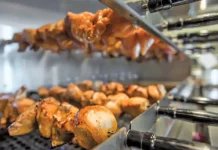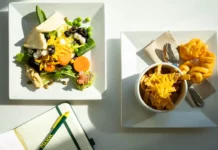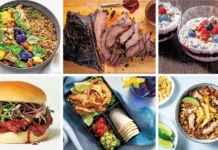Know the requirements for food products that are manufactured or processed outside the country. by Wyman Philbrook
In last month’s column we spoke about the requirements of wholesalers in the continental US. What about foods that have not been manufactured or produced here? Transportation and the ability to refrigerate have dramatically changed where the food comes from in our retail food establishments. The USDA and the FDA are already stretched with their responsibilities. The FDA has tried to inspect products and foreign suppliers but they knew that there must be a better way. The Food Safety Modernization Act (FSMA) signed into law in 2011, addresses the challenges by moving the responsibility to the importer or the foreign exporter that are based here in the United States. According to the US Dept of Health & Human Services/Food & Drug Administration the following is being implemented:
Foreign Supplier Verification Program (FSVP)
The FSVP regulations are the way the requirements of FSMA regarding imports will be administered. It is based on the food product i.e. processed foods, produce, seafood, etc., the category of the importer, the nature of the hazards and who in the chain is controlling the hazard. Unless exempted all importers would follow the sections that apply to them. An importer is designated the owner of the food product when it arrives on US soil. In some instances where it is not an importer it may be the US based representative of the exporting company. These two designees (importing or exporting) would be required to develop, implement and maintain the following:
- Review the compliance status of the foreign company which will include FDA warning letters, import alerts and requirements for certifications
- Analyze the hazards associated with the types of food and the processes used to determine those that are most likely to occur
- Conduct verification activities that give assurance that the potential hazards identified are adequately controlled. These activities include on-site auditing, review of records, appropriate risk-based controls and lab testing
- Review complaints; investigate causes of adulteration and misbranding or labeling. Take corrective actions against the supplier when warranted
- Periodically review their systems to insure that they are controlling the hazard and update as necessary based on changes in the product, process, facility or new science
- Assign a number along with their company name which would be used for filing with the Customs and Border Protection for each shipment entering the US
- Maintain records that will show that a Hazard Analysis has been conducted, verification activities, investigations and corrective actions taken
Controls for Hazards
The FDA is requiring that the importer or based on the situation the exporter, is insuring no food that is harmful will be brought into the country. A mix of on-site auditing, sampling and testing, review of records are conducted and that these are on-going activities. The records should be reviewed annually at a minimum.
As with US wholesalers & processors there are the minimum requirements for:
- Water safety
- Sanitary conditions
- Contamination or adulteration prevention
- Protection of food, packaging materials and food contact surfaces from chemical, physical and biological contaminants
- Chemical controls
- Employee health
- Pest control
HACCP & Certifications
HACCP and programs based on its model are the global standards for using risk-based food safety control systems. They all require the basic foundations of solid Pre-requisite programs as addressed in previous columns. Juice and seafood require a HACCP plan and a comprehensive food safety system just as they do in the US. A HACCP based model would require that the prerequisite programs for that food product be in place and that a thorough and complete hazard analysis is conducted. The analysis should validate that the identified hazards are controlled by the prerequisite programs. If not, critical control points need to be established and it becomes a normal HACCP plan that is addressed with critical limits, monitoring and corrective actions.
In countries which have food safety laws & regulations that are not at the same standards level of the US, certifications may be required that the food is processed safely. These certifications may be by FDA designated agencies, representative of that country’s government or a globally recognized auditing company. We discussed in our previous columns the Global Food Safety Initiative’s (GFSI) universal standards, benchmarking, review and acceptance of auditing schemes such as British Retail Consortium (BRC), Safe Quality Food (SQF) and others.
The sections of the FSMA that apply to imports are meant to strengthen and give assurance that food safety standards that are comparable to those in the US are used in the processing and handling of all foods before they reach our shores.
Next month we will address the USDA/FSIS & the FDA and their roles in the enforcement of food safety in the USA.
Philbrook Food & Beverage Consulting & Training specializes in preparing food service establishments to address all food safety issues by assisting with the development of programs, staff & facilities. We offer customized on-site and public training in HACCP & Food Safety issues. Check out our class schedules and contact info at philbrookconsulting.com for more information.























